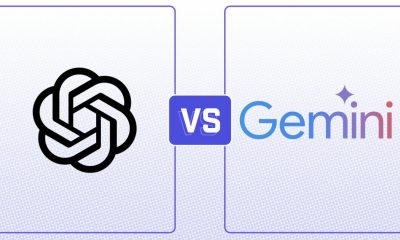Technology
The real reason Facebook let Houseparty slip away

It’s no secret that Facebook is wary of competitors. The company regularly acquires or copies smaller apps it sees as potential threats.
But one recent upstart did mange to slip away from the company: Houseparty. The video chat app, started by the same company behind live video app Meerkat, established itself as a teen favorite starting in 2017, garnering comparisons to Snapchat.
Around the same time, The Wall Street Journal reported that Facebook had come knocking. But a deal between the two companies never materialized and Facebook later introduced its own (now failed) group video chat app, Bonfire.
Now, we know not only that Facebook again tried to buy Houseparty, but the real reason it stopped pursuing the startup: a growing fear of regulatory scrutiny. As pressure surrounding Facebook has ramped up, the company has faced more uncomfortable questions from officials about how it handles competition.
It was this pressure that caused Facebook to abruptly end acquisition talks with Houseparty last year, according to a new report in the New York Times. Facebook officials reportedly thought the acquisition would be too “risky,” as the Federal Trade Commission had already begun looking into the company’s acquisition practices.
The new informations suggests that Facebook is indeed concerned about antitrust investigations, even though the company has publicly argued that it isn’t a monopoly.
Houseparty was scooped up by Fortnite developer Epic Games in June. One month later, Facebook disclosed that the FTC had opened an antirust investigation into the company.
Facebook has long had a reputation for ruthlessly pursuing potential competitors. Two of the company’s earlier acquisitions, Instagram and WhatsApp, helped cement the company’s position as the most dominant social media company in the world. Mark Zuckerberg also famously tried, and failed, to buy Snapchat. Facebook spent the next several years trying to clone the rival app’s features.
Facebook has also taken some unusual steps to root out competitors before they become a threat. The company acquired Onavo, a Virtual Private Network (VPN) app, in 2013 and used data from the service to track rival apps. Among the apps closely monitored, according to internal documents: Snapchat and WhatsApp. Facebook shut down Onavo earlier this year following criticism.
Now, the company is working on a multi-year plan to bring Facebook, Instagram, and WhatsApp closer together. Zuckerberg has said the goal is to re-orient the services around privacy and encryption. Critics have said the goal is to make it more difficult to break up the company.

-

 Entertainment7 days ago
Entertainment7 days agoNASA discovered bacteria that wouldn’t die. Now it’s boosting sunscreen.
-

 Business7 days ago
Business7 days agoTesla drops prices, Meta confirms Llama 3 release, and Apple allows emulators in the App Store
-

 Business6 days ago
Business6 days agoTechCrunch Mobility: Cruise robotaxis return and Ford’s BlueCruise comes under scrutiny
-

 Entertainment6 days ago
Entertainment6 days ago‘The Sympathizer’ review: Park Chan-wook’s Vietnam War spy thriller is TV magic
-

 Business4 days ago
Business4 days agoTesla layoffs hit high performers, some departments slashed, sources say
-

 Business5 days ago
Business5 days agoMeta to close Threads in Turkey to comply with injunction prohibiting data-sharing with Instagram
-

 Entertainment4 days ago
Entertainment4 days agoChatGPT vs. Gemini: Which AI chatbot won our 5-round match?
-

 Business3 days ago
Business3 days agoFormer top SpaceX exec Tom Ochinero sets up new VC firm, filings reveal





















